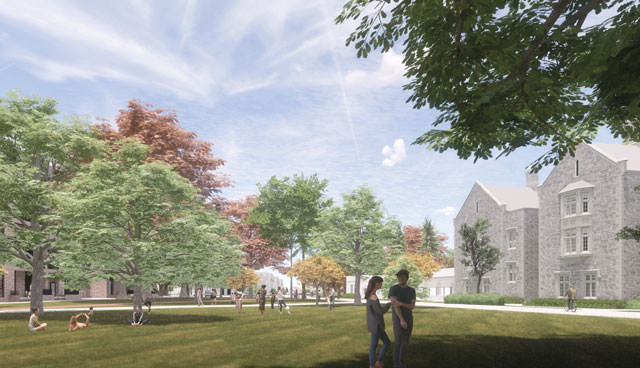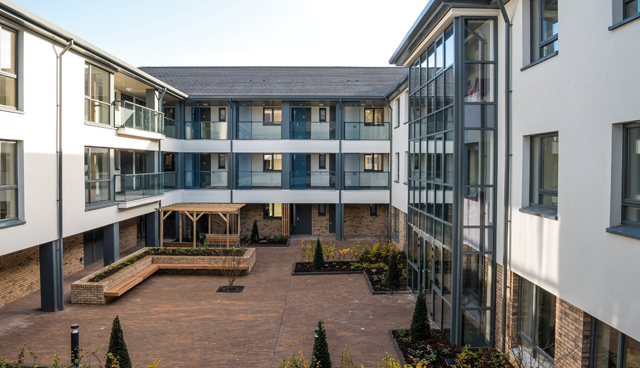
LDA benefits from close partnership with local authorities and state agencies
4th July 2022
Celebrating 10 years of The Housing Agency
4th July 2022‘Ongoing housing need’ much greater than government waiting list

The Parliamentary Budget Office (PBO) has called into question the sustainability of the model which has led to the State funding two-fifths private rental tenancies, describing it as “questionable”.
In analysis looking at trends in spending and outputs of social and state supported housing over the decade to 2020, the PBO pointed specifically at the practice of using finite financial resources to fund long-term needs, with short-term and potentially precarious housing measures, as questionable in terms of sustainability.
The report identifies “extreme volatility” in funding and outputs in recent decades, a move away from the historical model of significant capital build projects by the State to address requirements for housing, as cause for the present need to significantly increase the delivery of units over a short period of time.
Additionally, an “overreliance” on the private rental sector to alleviate the shortfall in publicly owned stock has stemmed from changing policy goals around the methods of delivery.
Combined, it means that despite an almost €30 billion spend between 2001-2020 on and capital build units, the present stock of social housing is “insufficient to fully meet the long-term or ongoing need to the population”.
The PBO estimates that around €29 billion of capital investment is required to meet the social housing needs of around 62,000 who are recorded officially as having unmet social housing need and a further 60,000 Housing Assistance Payment (HAP) tenancies with an “ongoing need”. It also notes that more households are being pushed towards the need for housing support given rising rental costs and insufficient supply of new units.
“Given the timeframe for delivery on capital projects, and an individual’s immediate need for housing, a mix of capital and current funded delivery methods allows for greater flexibility in meeting a variety of requirements.
“Furthermore, regional differences in build and rental costs mean the long-term value of each delivery method is not constant across the nation. However, with the State now funding nearly four-in-10 private rental tenancies, the sustainability of the model employed is questionable, particularly the use of finite financial resources to fund long-term needs with short-term and potentially precarious housing measures.”
At the end of 2020, 38 per cent (excluding rental tenancies directly with a local authority) of rentals registered with the Residential Tenancies Board (RTB) were supported by State funding, with almost 70 per cent of Rebuilding Ireland’s cumulative delivery encompassing social housing ‘solutions’ via HAP and the Rental Accommodation Scheme (RAS), rather than through State building, acquisition, or leasing.
While State figures at the end of 2020 show 62,000 households with an unmet social housing need (roughly 112,000 people including children), the PBO highlights that a further 60,000 households (152,000 people) were in potentially precarious private rental HAP tenancies.
“Therefore, within these approximately 122,000 households, there are upwards of 260,000 people eligible for, but not yet in receipt of, long-term social housing,” the report states.
By including HAP tenancies, essentially doubling the Government’s estimate of the number of households in need of social housing, the PBO’s introduction of a new measurement of “ongoing need” attempts to avert the removal of HAP tenancies from the main social housing lists, highlighting that this practice can “mask long-term housing requirements and understate the level of outputs required in future”.
“In the absence of detailed analysis of social housing transfer lists to determine the number of households, the means (HAP etc.) and type (apartment etc.) of their current housing support, and their desired housing support (larger house etc.) the true scale of unmet social housing need in the State is unknown,” the report states.
“A more accurate measure of unmet social housing demand would encompass not just those whose needs are entirely unmet, but also those whose needs are not adequately met by the current form of social housing support they receive.”
Spending
The PBO report outlines that between 2001 and 2020, approximately €16 billion has been spent on capital funded housing, with a further €13 billion spent on current funded measures, including rent supplement. In nominal terms, voted spend on housing increased from €300 million in 2021 to €1.25 billion in 2020.
Indicating the need for local authorities to make available a suite of delivery measures which best address the particular market conditions in their regions when seeking to meet the needs of those requiring housing supports, the PBO highlights that where social housing needs are identified, capital investment offers better value for money in the longer term. Therefore, it recommends priority should be given to the supply of capital units in areas, or unit types, where this value can be achieved more promptly.
Basing estimates on 2020 build costs, the PBO says: “Taking account of the departmental housing build cost estimates in 2020 for various property types, the PBO estimates that the cost of delivery for all currently eligible households with an unmet need would be at least €14.3 billion.
“Similarly, an estimated cost of over €15 billion would be required to provide a unit of Housing for All HAP tenancies through capital means.”
Looking forward to the implications of housing supply issues, the PBO says the absence of sufficient supply of both social and private will increase pressure on the available rental stock, leading to the inflationary effect on rents for private renters and the Exchequer.
“Long-term, the scale of development required to deliver the desired level of housing units – along with the capacity of the construction sector to deliver these units promptly – is likely to pose a more significant challenge to meeting housing needs (both social and private) than the temporary disruption caused by public health measures in response to the pandemic,” the PBO concludes.






